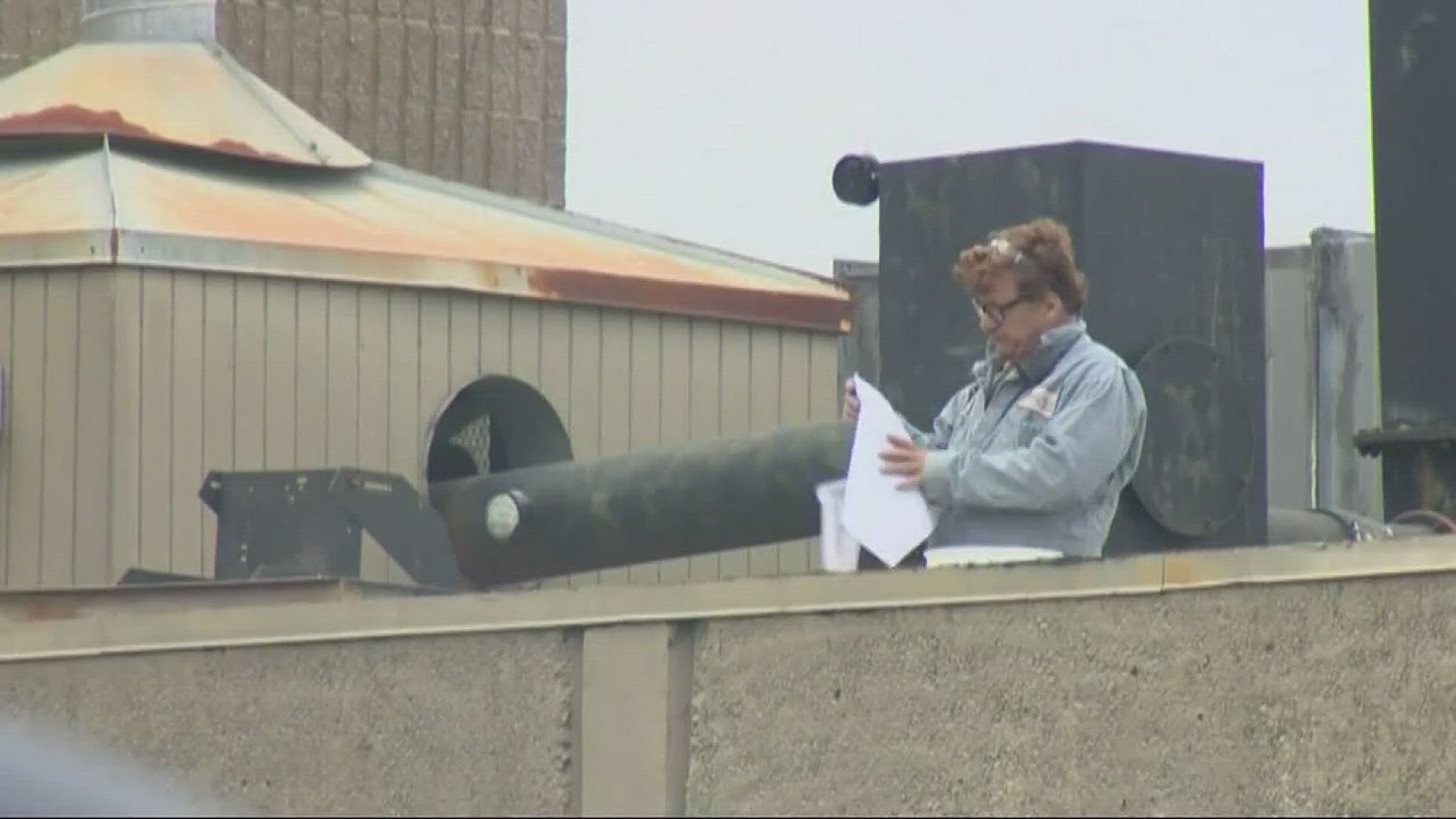With a bipartisan vote, the Oregon House approved a $5.3 billion transportation funding package designed to target congestion, public transportation, crumbling roads and decaying bridges.
House Bill 2017 passed with a 39-20 vote, three more votes than required for a three-fifths majority.
The vote came only days after the 295-page transportation bill was passed out of committee.
The bill now heads to the Oregon Senate. With only days left in the 2017 session, a vote is expected soon. A first reading of the proposed bill is scheduled for Thursday.
The Joint Transportation Preservation and Modernization Committee introduced the package after 18 months and an 11-stop tour of Oregon to meet with stakeholders and community members.
“Transportation means access to a better life and a better future for Oregonians,” Rep. Caddy McKeown, D-Coos Bay, who chaired the committee, said. “Every day, people rely on our roads to get to their jobs, to school, to the doctor, to the grocery store, to social services, and to be with their families. A well-maintained transportation system brings us all together.”
The bill includes money for cities and counties to upgrade their roads, big projects such as a major seismic upgrade of the Center Street Bridge in Salem, grants for transit agencies all across the state and grants for schools to improve miles of sidewalks and bike lanes through the Safe Routes to School program.
Co-vice-chair Rep. Cliff Bentz, R-Ontario, likened the need to address transportation infrastructure to his recent heart attack.
He was able to recognize the heart attack symptoms and get immediate help. The same quick action, he said, needs to be taken for the crumbling roads and unsound bridges across Oregon.
“We can wait until our bridges and roads fail,” Bentz said. “If I had waited... I wouldn’t be here.”
The package would increase Marion County’s share of the gas tax by $79.8 million and Polk County’s by $19 million, according to staff estimates.
The package will also fund alternative transportation by instituting a payroll tax of one-tenth of a percent of wages. In 2018, officials expect to raise $103 million for public transit in metro areas and rural communities.
A tax on certain adult bicycle purchases will also fund bike and pedestrian infrastructure, and the package will also provide $12 million a year in rebates for electric and zero-emission vehicles— an issue some House Republicans took issue with.
Rep. Julie Parrish, R-West Linn, said she objected to creating payroll tax on low-income residents while funding tax credits for people wanting to buy Teslas.
She was the only representative to speak out against the bill in Wednesday's session, but others echoed her sentiments.
“I believe Oregon is long overdue to improve our transportation infrastructure but this plan is the wrong way to do it," Rep. Knute Buehler, R-Bend, said in a statement. "I'm strongly opposed to a new 'Tesla Tax' to subsidize the purchase of electric cars for a privileged few."
He also voiced concern over the lack of accountability and transparency.
Supporters of the bill, however, countered that the package promotes accountability by requiring projects to be "shovel-ready" before receiving funding. Governments also must return to the Legislature every two years and report how they've used the funds.
Summary of taxes in the proposed bill
GAS TAX: Up 4 cents per gallon in January 2018 and then up 2 cents per gallon every two years until 2024 for a total increase of 10 cents per gallon
BIKE TAX: $15 tax on bicycle purchases of $200 or more
CAR REGISTRATION FEES: Raises the basic fee to $56 and adds sums based on miles per gallon beginning in 2020:
-- For vehicles that have a rating of 0-19 MPG, $18
-- For vehicles that have a rating of 20-39 MPG, $23.
-- For vehicles that have a rating of 40 MPG or greater, $33
-- For electric vehicles, $110.
The fees will bump up by a couple of bucks in 2022.
TRANSIT PAYROLL TAX: 0.1 percent on all employees
NEW CAR SALES: 0.5 percent
ELECTRIC/HYBRID PURCHASE REBATE: $2,500 electric purchase, $1,500 hybrid purchase
For questions, comments and news tips, email reporter Whitney Woodworth at wmwoodwort@statesmanjournal.com, call 503-399-6884 or follow on Twitter @wmwoodworth
Reporter Diane Dietz contributed to this article

